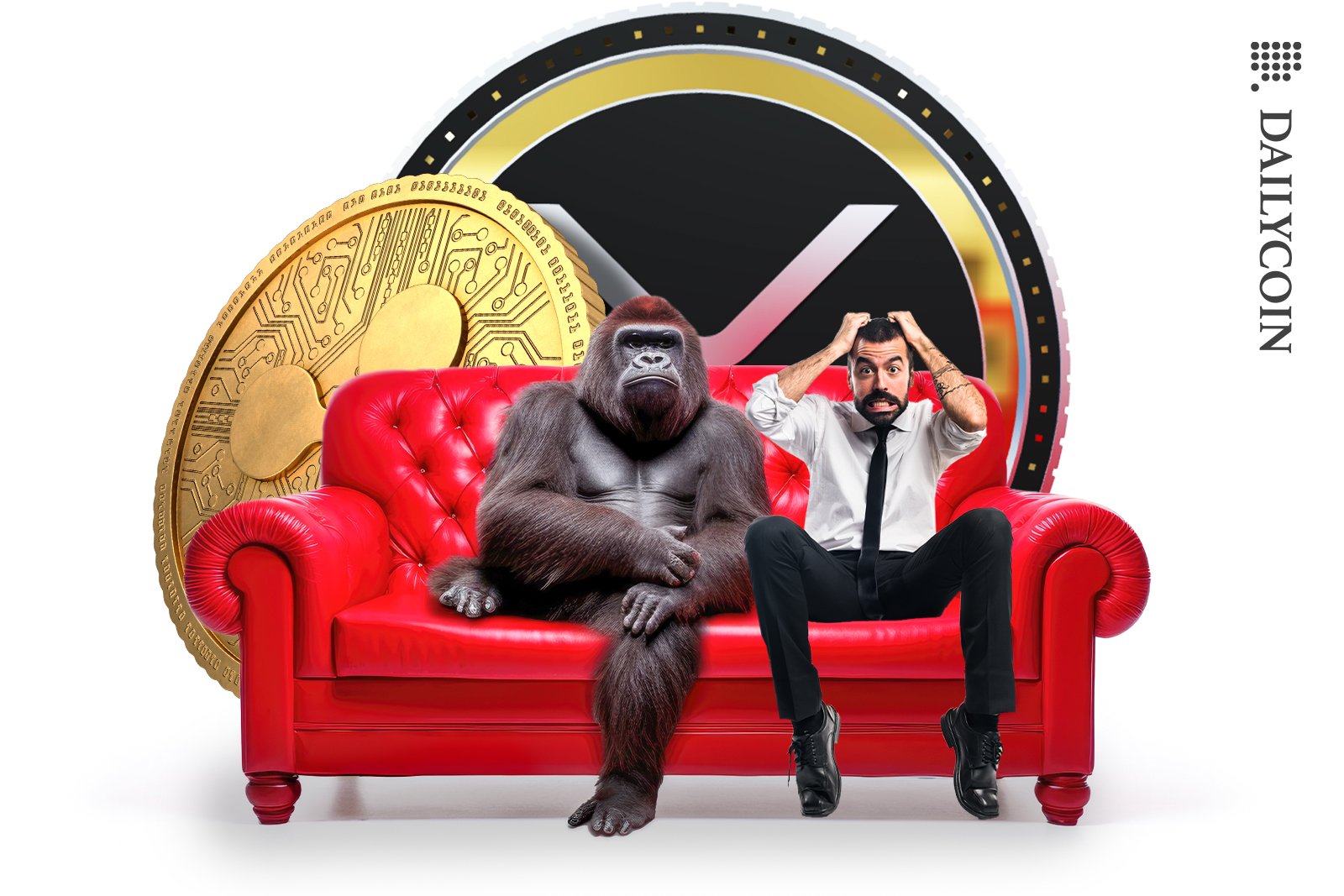
- The legal battle between Ripple and the SEC has escalated.
- Has the SEC obtained evidence that XRP holders have expected profits from Ripple’s efforts?
- John Deaton has concurred the majority of first-time buyers have been unaware of Ripple as a company.
In the midst of the protracted legal dispute between the U.S. Securities and Exchange Commission (SEC) and Ripple, attorney John Deaton finds himself at the center of an impassioned debate surrounding the security status of XRP.
The controversy began on June 23 when lawyer and crypto enthusiast Bill Hogan raised a thought-provoking question: “Does the SEC possess evidence of a single XRP holder who anticipated profits from Ripple’s efforts?” Jesse Haynes, the founder of equity crowdfunding firm SeedStarter, admitted to purchasing XRP, believing that Ripple would enhance its utility.
Many others shared similar expectations, as Haynes revealed numerous messages from individuals who bought XRP without prior research.
Majority of New XRP Investors Oblivious to Ripple Connection
John Deaton, a pro-Ripple lawyer, agreed with Haynes, stating that over 52% of first-time XRP buyers were unaware of Ripple as a company. Surprisingly, these buyers recognized the name “Ripple” but remained oblivious to its role as a software seller to banks. Deaton firmly stood by this fact, despite skepticism.
Sponsored
Regarding investors aware of Ripple’s involvement, including XRP Ledger developers, Deaton acknowledged their existence. However, he explained that establishing whether XRP was a security depended on specific grounds.
If Ripple directly sold XRP to an investor, fulfilling the Howey test, it could be considered a security. This entailed providing funds to Ripple, forming a common enterprise, and expecting profits from XRP based on Ripple’s talents and efforts.
Deaton Defends XRP Holders
Deaton emphasized that acquiring XRP indirectly or for non-investment purposes presented different circumstances. Even if Ripple sold an investment contract using XRP as an underlying asset, it would not classify XRP as a security or affect the security status of personal XRP holdings.
Sponsored
As the representative of thousands of XRP holders in the lawsuit, Deaton vehemently opposes the SEC’s assertion that XRP is a security. He criticizes the regulator’s perceived overreach in the crypto sector, recently suggesting that the lawsuits against Binance and Coinbase were designed to benefit Wall Street players.
On the Flipside
- The lack of awareness among first-time XRP buyers about Ripple as a company reflects a broader issue of insufficient due diligence and research within the cryptocurrency market as a whole.
- The Howey test, which Deaton references to determine whether XRP qualifies as a security, might not adequately capture the unique characteristics and functionalities of digital assets like XRP.
Why This Matters
The outcome of this case will set a precedent that could impact not only the future of XRP but also shape the regulatory landscape for other cryptocurrencies, underscoring the need for clarity and establishing boundaries in this evolving ecosystem.
To learn more about the controversy surrounding the timing of the summary judgment in the Ripple XRP lawsuit, read here:
Ripple XRP Lawsuit Spawns Controversy Around Summary Judgement Timing
To stay updated on the growing demand for US dollar-backed stablecoins in Asia and the role of Circle USDC, read here:
Circle (USDC) Eyes Asia’s Growing Demand for US Dollar-Backed Stablecoins
FAQs
The largest holders of XRP include project founders and executives like Chris Larsen and Brad Garlinghouse and centralized exchanges such as Binance, Kraken, Uphold, Bitbank, and others. These exchanges and crypto lenders hold significant amounts of XRP on behalf of their customers, with multiple addresses worth hundreds of millions. Ripple and its founders also own a substantial portion of XRP. Most exchanges’ XRP holdings represent customers’ deposits kept in reserves.
While the outcome of the lawsuit between the SEC and Ripple can influence market sentiment, it is challenging to predict the exact impact on the price of XRP. A favorable ruling for Ripple could boost investor confidence and increase demand for XRP. However, market dynamics are complex, and various factors beyond the lawsuit may also influence the price of XRP.
Yes, XRP operates on a decentralized ledger called the XRP Ledger (XRPL). The XRPL is a distributed ledger technology developed by Ripple to facilitate fast and efficient transactions. It is designed to enable the seamless transfer of XRP and supports issuing and transferring various other digital assets. The XRPL is open-source and operates on a consensus algorithm that differs from traditional blockchain systems, utilizing a unique consensus protocol known as the Ripple Protocol Consensus Algorithm.
Bill Hogan is a lawyer and crypto enthusiast who has become notable for his involvement in discussions and debates surrounding cryptocurrencies, particularly with the ongoing legal battle between the SEC and Ripple. Hogan has posed thought-provoking questions and shared his perspectives on the case, contributing to the public discourse surrounding the classification of XRP as a security.
